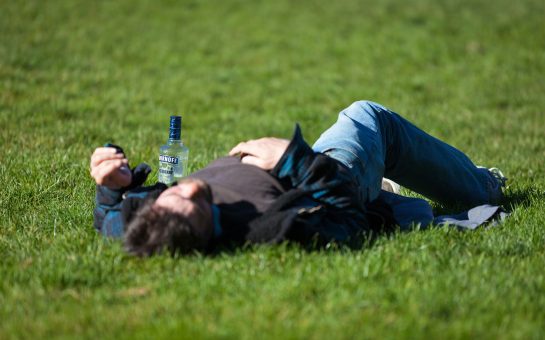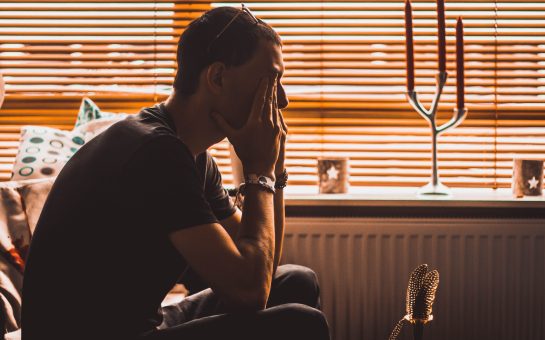A film about Eric Clapton was always going to get you tapping your foot.
And that is what his friend Lili Fini Zanuck – the director of 1991 film Rush and Oscar-winning producer of Driving Miss Daisy (1989) achieves in Eric Clapton: Life in 12 Bars, her first movie since meeting the music legend who wrote the score for Rush.
Premiered at the Toronto International Film Festival in September, the 134-minute journey is forced to skip over many episodes of Clapton’s eventful 72 years on earth: yet what it lacks in content in places it makes up for handsomely with a rich musical backdrop.
We are led in detail through Clapton’s early years – the Englishman is best with a guitar in his hand – from his roles with the Yardbirds to Cream then his solo years from the 70s onwards.
After all the Surrey-born genius, the only ever three-time-inductee to the Rock and Roll Hall of Fame and an 18-time Grammy Award winner, is set to headline Hyde Park’s British Summer Time in July after his 73rd birthday.
MM caught up with Lili late last year before the film’s UK and Ireland release on January 12.
MM: Hi Lili. What was it like to be back making a film again – of course more than 25 years since Rush and Driving Miss Daisy?
LFZ: I had never done a documentary before and it’s all the opposite muscles of what I’ve used before to make a movie.
You have less control, you don’t really have a plan, I didn’t want to decide on a narrative and then back into it, like the way that an interview sometimes goes.
I really wanted to see where this took me and Eric did take me places I didn’t expect to go and so did his Aunt and all the other people I interviewed.
So I was prepared to shift however the story went.
Is the film about the music or more about shedding light on Eric’s personality?
Of course the music is a big, big deal because it not only saved him, but also I’m so interested – I can only put so much of this across in the movie – in what these post-war teenagers felt when they heard American blues. There was this optimistic music, with maybe truthfulness to it or how raw it was.
It seems there’s so much left unsaid though. Did you wrestle with the idea of making two movies?
I could have done four hours so easily. What’s missing are these major musical collaborations but no one wanted the four-hour version. That’s the compromise that bothers me the most. There are these huge musical moments – like the time he spent with Delaney and Bonnie, or the time he spent with the band in Woodstock, these things he did all the time he was down in Tulsa.
Not only that, there are major songs where all you see is the album cover. Wonderful Tonight, I Shot the Sheriff, lots of things like that. So from that point of view the movie is compromised. But I couldn’t start cutting out important parts of his life so that I could take you down the Delaney and Bonnie route.
I wasn’t given that choice. The choice I was given was which of your children are you willing to kill?
Interesting, and of course you’re close to him so there must have been times where you said to him ‘Eric, this needs covering.’ Do you think that makes you the best person to have made this film by standing up to him?
He was totally on board. He felt if we’re going to do this, we’re going to do this. He didn’t hold back on me. The racist part was the hardest thing for him. But he never asked me can you take that out. Nothing.
I think all in all there’s so many things about that period of his life that are just black. That’s when he was saying ‘the only reason I didn’t kill myself was for the love of alcohol.’
He’s changed a lot, that much is clear…
I mean when you see him drunk saying: ‘I don’t know what that Cream thing was, it was so aggressive, I would have been better off staying with John Mayall.’ That’s not who he is. Now he talks about how musically tight Cream was, that it was a shame it couldn’t continue.
His opinions and everything have changed over time.
So you met him in 1991 when he did the score to Rush, but when did you begin work on this project?
Two and a half years ago. We’ve known each other 25 years but the difference is you never have these kinds of conversations with anybody whether it’s your friend or whoever. There’s no reason to in a friendship – if these things come up they come up, but doing this totally changed our relationship and took it to a new depth.
After the film was made we were having dinner and he said ‘You know you don’t know everything about me?’ and I said ‘I don’t think I do know everything about you!’ I was very touched by that idea.
I don’t think there’s anything in the movie where he’d say ‘That’s a lie’. I wasn’t trying to do anything way out the back and let the viewers decide how they felt. I was definitely not trying to whitewash anything. Anything that’s not in there is because I didn’t have more time.
It was very interesting, it was very challenging, and it was also a lot of fun.
What did the film teach you about your relationships with others?
I don’t want to go on a journey where I don’t come out better on the other side. I feel I delivered a truthful story and in an interesting way, with the problem of how hard it was to get footage of anything.
Today there would be one million selfies whereas back then it wasn’t cool to get in a picture with someone famous.
I think it’s the only film I’ve made that I can watch with an audience. I’ve seen it six times with an audience already. When I made Driving Miss Daisy I got to the Berlin Film Festival and I was blown out. I couldn’t see it one more time.
This one I keep watching and I’ve moved. I’ve never had that happen.
My husband was more sentimental than I was and every time in Driving Miss Daisy when Morgan Freeman held Jessica Candy’s hand, he was touched by it. He’d say ‘What’s wrong with you?’
I was in the closet when we shot that as it was such a little room, so the camera had to be in the closet. I was just sitting on the floor.
Maybe the difference is with Eric it all really happened. It’s not a dramatisation. Maybe that’s the difference emotionally for me.
Isn’t it quite refreshing that someone so big was able to remain a little elusive and avoid the social media age?
Yeah that’s definitely a cool thing about it, plus you also don’t have the conceit that happens with the selfie.
And what’s next for you? Is this your crowning achievement ?
I have no idea. Since my husband died I’ve just gone with the wind. I’m open to what comes my way and what interests me but I’ve retired the kneepads – I’m not filling the bedding anymore.
Has there been any reaction to this film so far you’ve not liked?
There’s been criticism I missed out musical parts, but there’s nothing I can do. There’s also been criticism that I took the romance out of the whole Layla thing, but that was one of the most interesting discoveries for me.
I thought he was in love with her, she heard it and they lived happily ever after. So the idea that they were flirting for three years, only had sex once, then the thing happens where they’re at the party on the same night they had sex and she goes off with George, then he goes and records the album, she hears it, she’s touched but can’t wait to go home, and then she comes and finds him on the road seven years later. No text, no little happy face, nothing to keep them connected in all that time.
That to me was my biggest surprise and discovery.
Well thanks for your time Lili and best of luck with the film’s release in the UK.


